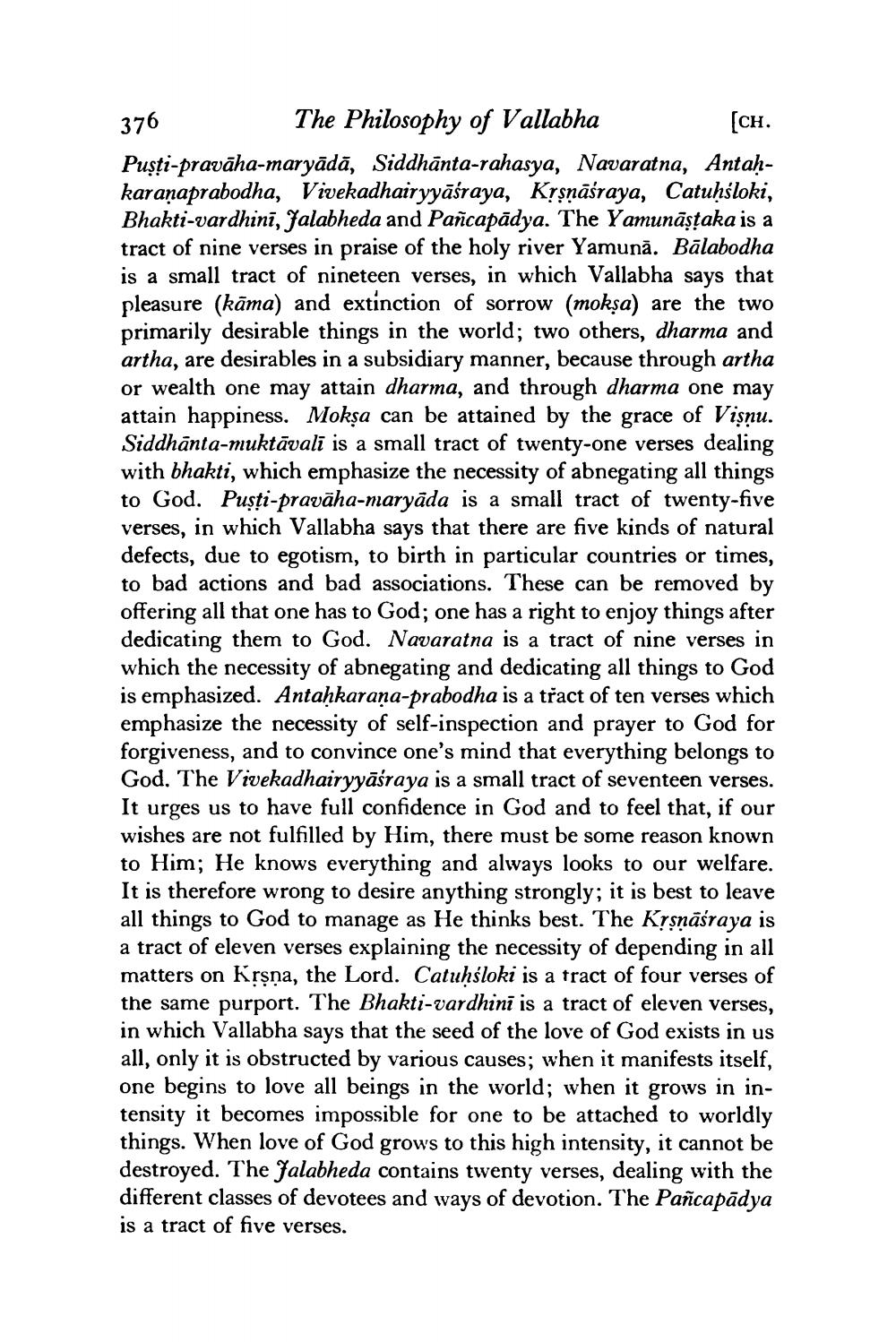________________
376
The Philosophy of Vallabha
[CH. Pusti-pravāha-maryādā, Siddhānta-rahasya, Navaratna, Antahkaranaprabodha, Vivekadhairyyāšraya, Krşnāšraya, Catuḥśloki, Bhakti-vardhini, Jalabheda and Pañcapādya. The Yamunāştaka is a tract of nine verses in praise of the holy river Yamunā. Bālabodha is a small tract of nineteen verses, in which Vallabha says that pleasure (kāma) and extinction of sorrow (mokşa) are the two primarily desirable things in the world; two others, dharma and artha, are desirables in a subsidiary manner, because through artha or wealth one may attain dharma, and through dharma one may attain happiness. Mokșa can be attained by the grace of Vişnu. Siddhānta-muktāvalī is a small tract of twenty-one verses dealing with bhakti, which emphasize the necessity of abnegating all things to God. Pusți-pravāha-maryāda is a small tract of twenty-five verses, in which Vallabha says that there are five kinds of natural defects, due to egotism, to birth in particular countries or times, to bad actions and bad associations. These can be removed by offering all that one has to God; one has a right to enjoy things after dedicating them to God. Navaratna is a tract of nine verses in which the necessity of abnegating and dedicating all things to God is emphasized. Antahkarana-prabodha is a tract of ten verses which emphasize the necessity of self-inspection and prayer to God for forgiveness, and to convince one's mind that everything belongs to God. The Vivekadhairyyāšraya is a small tract of seventeen verses. It urges us to have full confidence in God and to feel that, if our wishes are not fulfilled by Him, there must be some reason known to Him; He knows everything and always looks to our welfare. It is therefore wrong to desire anything strongly; it is best to leave all things to God to manage as He thinks best. The Krsnāšraya is a tract of eleven verses explaining the necessity of depending in all matters on Krsna, the Lord. Catuḥśloki is a tract of four verses of the same purport. The Bhakti-vardhini is a tract of eleven verses, in which Vallabha says that the seed of the love of God exists in us all, only it is obstructed by various causes; when it manifests itself, one begins to love all beings in the world; when it grows in intensity it becomes impossible for one to be attached to worldly things. When love of God grows to this high intensity, it cannot be destroyed. The Jalabheda contains twenty verses, dealing with the different classes of devotees and ways of devotion. The Pañcapādya is a tract of five verses.




